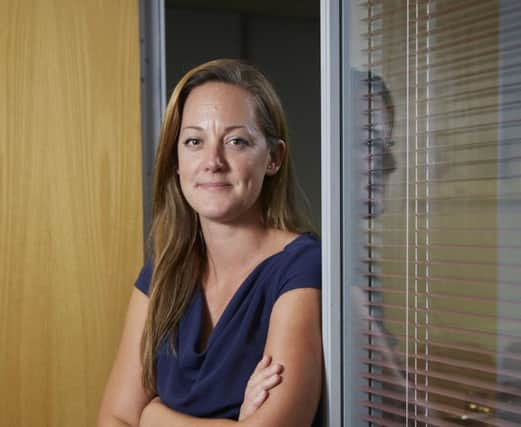Yorkshire-based software vendor helps to save lives by identifying people at risk


Zandra Moore, the newly appointed chief executive of Leeds-based Panintelligence, said the firm could potentially double its staff numbers over the next three years as it aims to push a number of US giants out of the market.
Panintelligence is a business intelligence and analytics developer which distributes its software through technology partners. The firm competes with US giants like Microsoft, Tableau, and Looker. Panintelligence, which has a turnover of £1.4m, provides a dashboard which presents data in a series of interactive charts and graphs.
Advertisement
Hide AdAdvertisement
Hide AdMs Moore said: “We’re working with local authorities, healthcare and education to identify groups or cohorts or individuals who potentially could be at risk in all sorts of contexts.
“It might be in social care, where there’s lots of data stored in different systems, to create a watch list of people who might be at risk.
“We put these tools in the hands of people who are actually at the front line. We’ve been working in the public sector for 10 years. We have 2,500 schools in the UK, who use our software.
“All the schools and local authorities in Scotland use it. We have over 70 housing associations in the UK that use our software, but we still see lots of other applications outside the areas we have some presence in.
Advertisement
Hide AdAdvertisement
Hide Ad“We are winning contracts, but we believe we can do a lot more in other areas around social care and policing, (which is) where we would like to move into.”
Ms Moore said that Panintelligence was also involved in projects in the automotive sector, which involved reducing waste by analysing production line data to pinpoint problems.
She added: “As a UK software vendor in analytics, we have many advantages over our predominately US counterparts.
“We understand the UK market and industry regulations and we don’t move data outside the UK. in fact we don’t need to move data at all.
Advertisement
Hide AdAdvertisement
Hide Ad“We are a technology company businesses can have a relationship with.
“Our customers have access to a team on their doorstep that can deliver data analytics solutions, often in a fraction of the time of our competitors.”
Ms Moore was promoted to the CEO’s role from her former position as Panintelligence’s sales and marketing director in January.
Mike Cripps, the founder of Panintelligence, said he had long seen Ms Moore as his natural successor. The firm’s revenues grew by 20 per cent in 2017.
Advertisement
Hide AdAdvertisement
Hide AdMs Moore added: “When we did the management buyout four years ago, we were six people. We are now 24. Could we double our staff numbers in the next two or three years? Absolutely. The opportunity is there.
“We’ve got to work with those sectors and industries where having a UK partner matters more to them.”
She said: “All of our team are in Yorkshire. We understand and work with lots of agencies. Being closely networked with the bodies and industries that represent these sectors and industries enables us to really develop our technology and get ahead of our competitors.”
Panintelligence recently joined Huddersfield University’s Digital Enablers Network which brings together the university’s staff, software companies, and manufacturing businesses.
Advertisement
Hide AdAdvertisement
Hide AdThe university-owned 3M Buckley Innovation Centre offers space for research projects on the “internet of things” and precision engineering to help the region’s economy grow.
Over the last three years, Panintelligence has quadrupled turnover, tripled staff numbers, and grown its partner base from 15 to more than 80.
Zandra Moore, the firm’s CEO, said: “We have grown our partners across a range of sectors with significant presence in fintech, education and healthcare sectors.”
Ms Moore is the founder of Lean In Leeds, a network of professional women based in and around the city. She said the relatively low cost of living and the rising number of graduate technology programmes were helping to persuade more women to take on leadership roles in the technology sector.